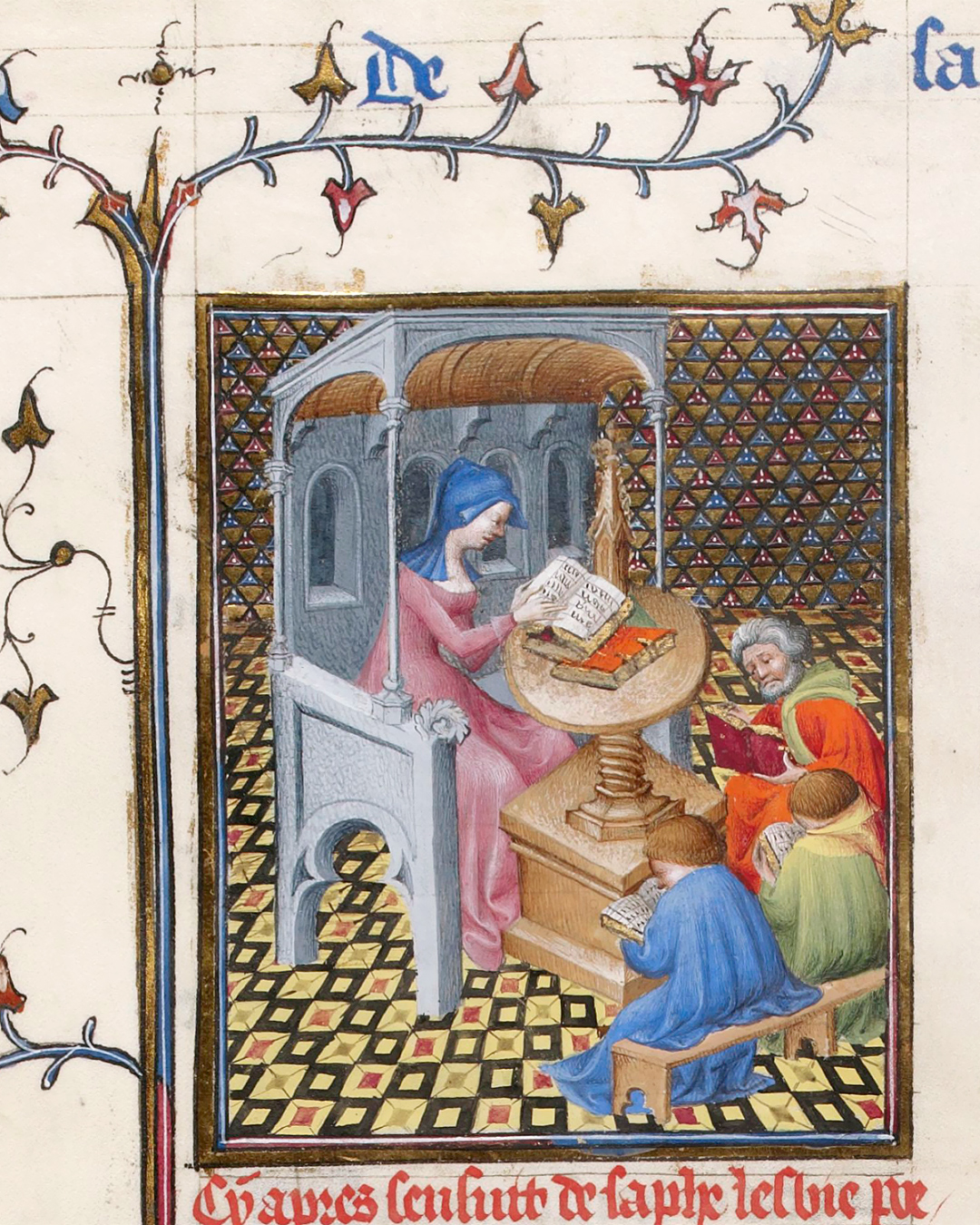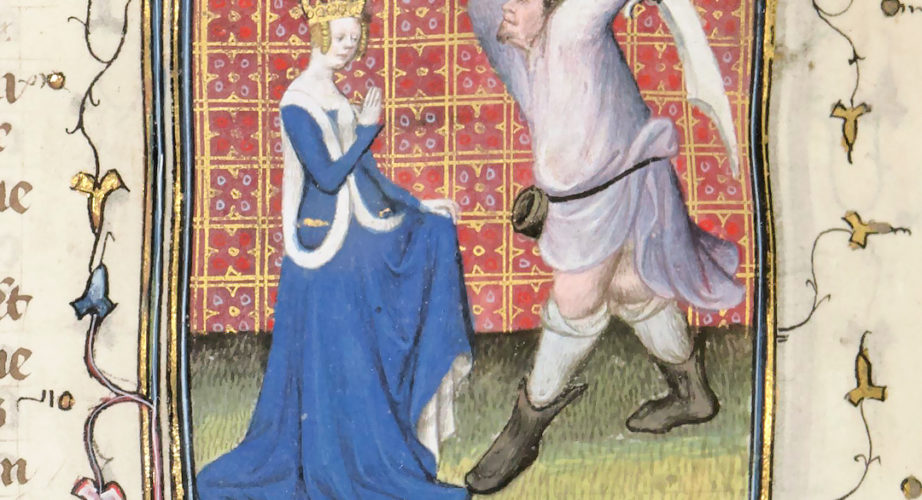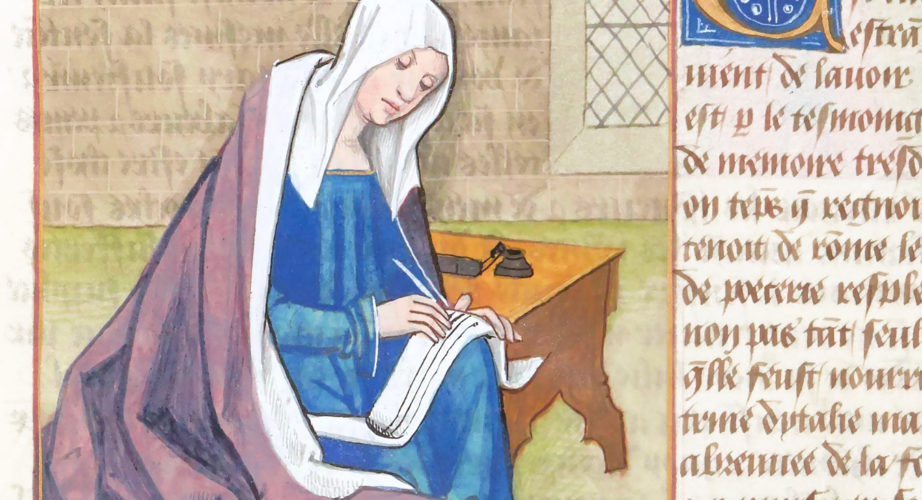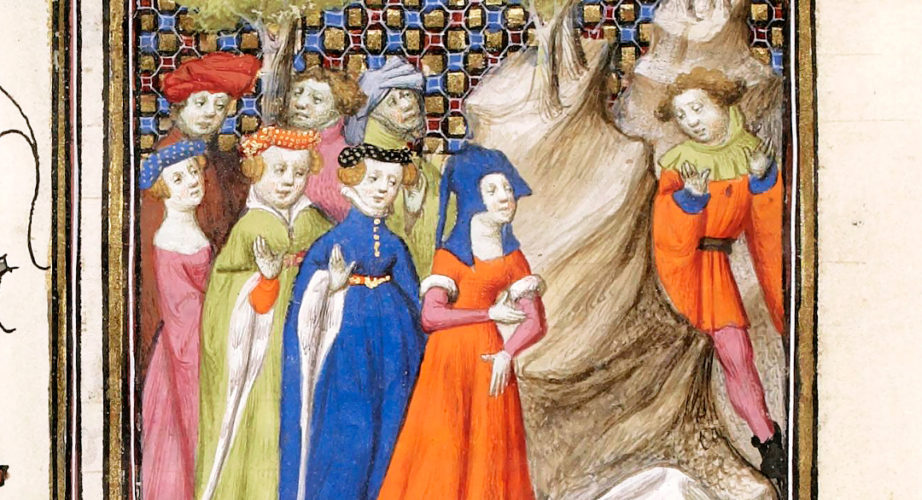Sappho

Our weekly installment on Boccaccio’s De Mulieribus Claris continues with Sappho, one of the greatest female poets of all time.
Said to have been born around 630 BC, Sappho came from the city of Eresos on the island of Lesbos, Greece. Coming from a honorable and noble family, it is believed that growing up in that environment gave her the possibility to develop such exceptional writing skills, with her poetry being regarded as unique and innovative.
According to a myth, Sappho is believed to be the inventor of the plectrum. One day, the poetess climbed Mount Parnassus, sacred to Apollo and known as the home of poetry, music, and learning. There, Sappho was greeted by the nine Muses (the goddesses of literature, science, and the arts) and was given a lyre: using a small object she had picked up to strum the strings of the instrument, she was able to create wonderful and intricate melodies, something not even the most skilled men were able to achieve.
Despite most of Sappho’s work being lost, her legacy managed to survive to the passing of time. In addition to her poetry, Sappho is most known for expressing romantic interest in other women: today, the poetess is considered by many as a symbol of female homosexuality, with the words “sapphic" and “lesbian" being derived from her own name and the name of her homeland.
“Sappho”, illumination from the manuscript “Livre des femmes nobles et renommees”, ms. Français 598, f. 71v, 1403, Bibliothèque nationale de France, Département des Manuscrits, Paris.
Historically and mythologically speaking, being in a powerful position (and perhaps also a…
The time has finally come for the very first Women’s Wednesday of 2021!…
Welcome back to another Women’s Wednesday! Our weekly Mulier Clara, much like Sappho…


